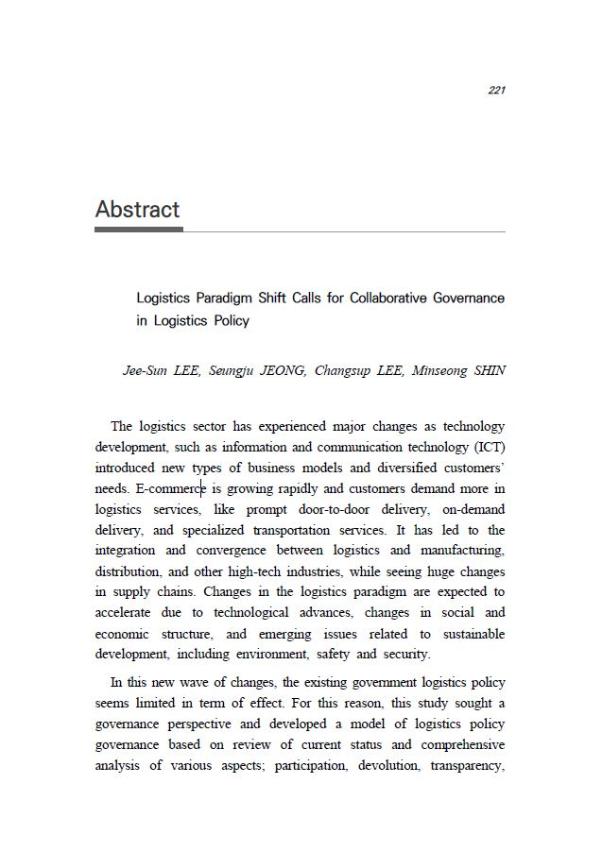Basic Report

RESEARCH
KOTI - Korea Transport institute
Logistics paradigm shift calls for collaborative governance in logistics policy
- Date
November 30 2016
- Page(s)
page(s)
#manufacturing
#high-tech industries
#Logistics Policy

The logistics sector has experienced major changes as technology development, such as information and communication technology (ICT) introduced new types of business models and diversified customers’ needs. E-commerce is growing rapidly and customers demand more in logistics services, like prompt door-to-door delivery, on-demand delivery, and specialized transportation services. It has led to the integration and convergence between logistics and manufacturing, distribution, and other high-tech industries, while seeing huge changes in supply chains. Changes in the logistics paradigm are expected to accelerate due to technological advances, changes in social and economic structure, and emerging issues related to sustainable development, including environment, safety and security.
In this new wave of changes, the existing government logistics policy seems limited in term of effect. For this reason, this study sought a governance perspective and developed a model of logistics policy governance based on review of current status and comprehensive analysis of various aspects; participation, devolution, transparency, accountability, efficiency, and results.
From the viewpoint of collaborative governance, the improvement plan with three core strategies was derived based on participation, network health, efficiency, and effectiveness. A total of 12 projects and detailed implementation plans were presented for each of the three core development strategies.
In order to facilitate implementation of the proposed projects effectively, establishment of the tentative Logistics Policy Governance Development Initiative, long-term restructuring of the legal and institutional system linked with the proposed projects, and reorganizing current logistics-related departments into a single ministry should be examined more closely in the future.